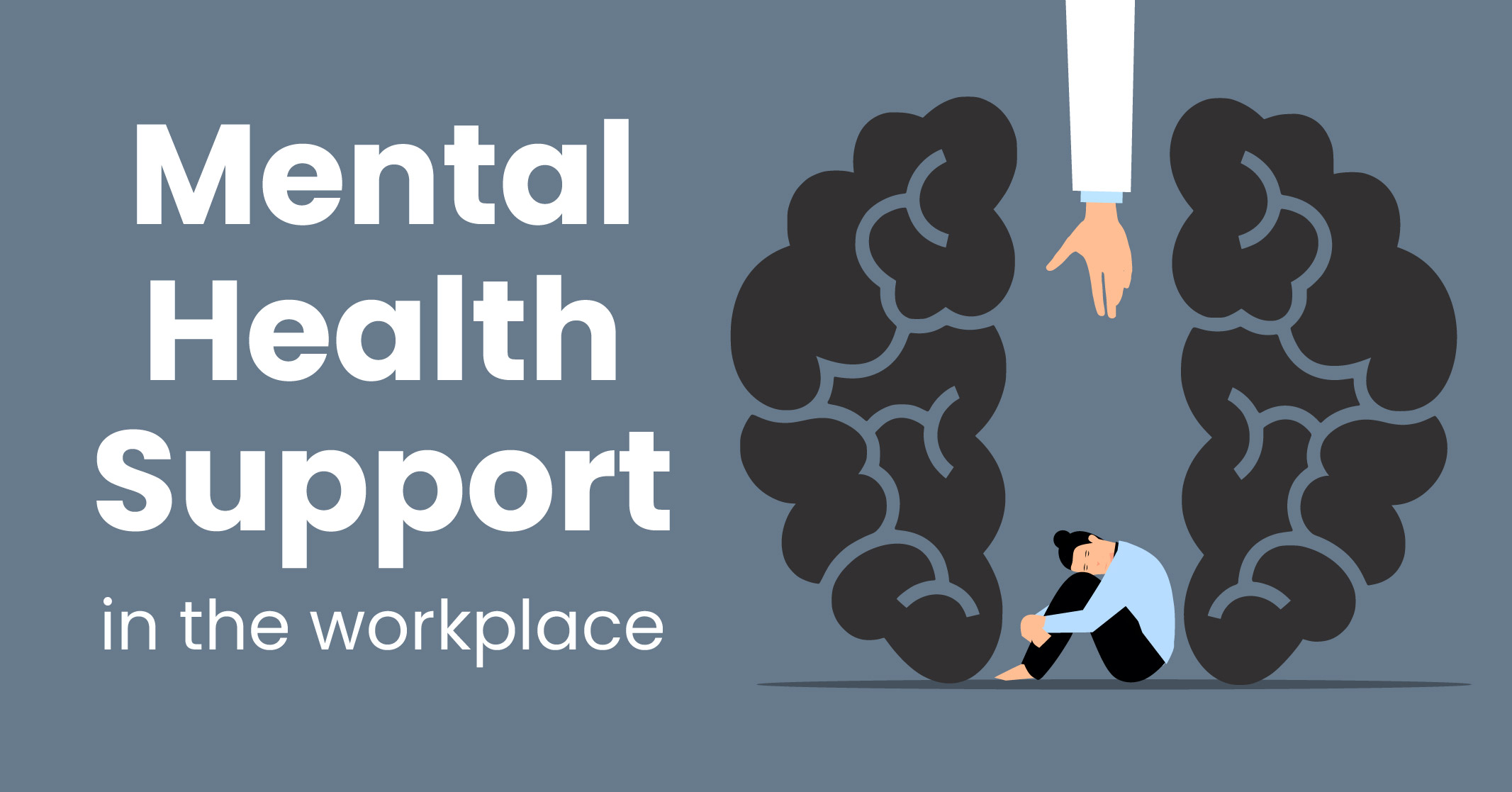Supporting Mental Health in the Workplace: How HR Builds Resilient and Thriving Teams
A healthy and productive workplace is dependent on strong mental health, affecting morale, co-operation and performance. HR’s role is almost critical to achieving that as awareness around mental health in professional settings grows, and their role in creating supportive programs and resources becomes paramount. Mental health is not just good for the individual, it is key to creating resilient, engaged, high performing teams (Wu et al., 2021).
How to Create a Stigma-Free Environment
Part of their importance is that management and HR hold the key to meaningful and healthy workplace culture where people talk freely about mental health without fear or shame. This involves trough mental health awareness training, encouraging regular conversations around what’s good when it comes to well-being and creating clear and confidential support opportunities (Rodríguez-Sánchez, 2021). HR would encourage employees to speak openly about their mental health, so by doing this, you help to reduce the isolation which can sometimes surround mental health issues, creating a safe, supportive environment. By normalizing these conversations employees feel more comfortable in asking for help and it creates culture of empathy and resiliency, which will contribute to higher team morale and cohesion (Hartwig et al., 2020).
Offering Access to Important Mental Health Resources
Accessing employee assistance programmes, access to counselling, designated mental health days and wellness apps which help with mindfulness and stress are all incredible offerings that HR can provide to help improve employee mental health. HR enables employees to take charge of their mental health via making these resources easily available and also well promoted. Being able to be visible is one motivator for people to not hesitate to seek help but, at the same time, make it a supporting environment (Rodríguez-Sánchez, 2021). According to such initiatives, not only do they increase personal well-being but also promotes a resilient, healthier workforce; where employees are taken care of and valued while having their mental health in check (Hartwig et al., 2020).
Enable Managers to Help Employee’s Mental Health
To make it support we must manage something first - equipping managers with mental health awareness skills (Petrie et al., 2018). HR can also train on active listening, empathetic communication and mental health challenge signs. These resources all help with making a compassionate space where your team members feel heard and supported and where well-being needs can be addressed effectively. HR therefore needs to empower managers to make mental health a priority, it needs to help establish a culture of understanding mental health and building resilience so staff are able to work more strongly and more cohesively together (Prudenzi et al., 2024).
Taking care of your mental health is important to creating teams that are resilient and productive. By encouraging a positive, stigma free environment HR plays a key part in ensuring employees feel valued and empowered to ask for help. The commitment to mental well-being boosts engagement and contrives the workforce to meet challenges, leading to the pursuit of long-term business success.
References
Hartwig, A., Clarke, S., Johnson, S. and Willis, S., 2020. Workplace team resilience: A systematic review and conceptual development. Organizational Psychology Review, 10(3–4), pp.169–200. https://doi.org/10.1177/2041386620919476.
Petrie, K., Gayed, A., Bryan, B.T., Deady, M., Madan, I., Savic, A., Wooldridge, Z., Counson, I., Calvo, R.A., Glozier, N. and Harvey, S.B., 2018. The importance of manager support for the mental health and well-being of ambulance personnel. Plos One, 13(5). https://doi.org/10.1371/journal.pone.0197802.
Prudenzi, A., Gill, K., MacArthur, M., Hastings, O., Moukhtarian, T., Jadhakhan, F., Patel, K., Kershaw, C., Norton-Brown, E., Johnston, N., Daly, G., Russell, S., Thomson, L., Munir, F., Blake, H., Meyer, C. and Marwaha, S., 2024. Supporting employers and their employees with mental health conditions to remain engaged and productive at work: A feasibility randomised controlled trial. Journal of Contextual Behavioral Science, 31, p.100720. https://doi.org/10.1016/j.jcbs.2023.100720.
Rodríguez-Sánchez, A.M., 2021. Yes, we can boost resilience: Human resource management practices to build resilience in the workplace. In: Emerald Publishing Limited eBooks. Emerald Publishing Limited. pp.83–98. https://doi.org/10.1108/978-1-83867-519-620211006.
Wu, A., Roemer, E.C., Kent, K.B., Ballard, D.W. and Goetzel, R.Z., 2021. Organizational best practices supporting mental health in the workplace. Journal of Occupational and Environmental Medicine, 63(12), pp.925–931. https://doi.org/10.1097/jom.0000000000002407.



This blog gives a good message about why mental health is important at work. I liked the part about HR giving support like counseling and wellness apps. It’s also nice to see how training managers can help the team feel safe and heard. More local examples from Sri Lanka would make it even stronger.
ReplyDeleteThank you for your thoughtful comment! I’m glad you liked the focus on mental health support at work. You’re absolutely right—local examples from Sri Lanka would make the message even more relevant and relatable. It would be great to highlight how local companies are implementing wellness programs, counseling services, and training for managers to create a supportive work environment. I’ll definitely aim to include more regional examples in future posts. Thanks again for the feedback!
DeleteThank you for this insightful article on supporting mental health in the workplace. Your emphasis on creating open, stigma-free environments resonates deeply, especially in the Sri Lankan context where mental health discussions are often considered taboo. Initiatives like Better Work Sri Lanka's nationwide programme, which incorporates creative therapies and awareness campaigns, are commendable steps towards destigmatizing mental health issues in professional settings . It's encouraging to see organizations recognizing the importance of mental well-being and taking proactive measures to support their employees. Your article serves as a valuable resource for HR professionals and organizational leaders aiming to foster a more inclusive and supportive work environment.
ReplyDeleteI sincerely appreciate your nice remarks. I'm so happy that the article struck a chord with you. You're entirely correct. In many parts of Sri Lanka, mental health is still a delicate subject, so it's good to see more organizations starting to speak out. Initiatives like Better Work Sri Lanka are a positive start, and I firmly think that we can establish workplaces where everyone feels respected, heard, and safe with more awareness and assistance. Thank you for sharing your thoughts!
DeleteWhat a timely and significant post! Establishing a supportive and resilient workplace requires managers to be well-versed in mental health issues and have the ability to communicate with empathy. I value the focus on active listening and identifying symptoms of mental health issues because these are doable actions that can have a significant impact. When it comes to creating a culture where mental health is valued and not just talked about, HR really does play a significant role. I appreciate you sharing how compassion and leadership work together to create more resilient teams.
ReplyDeleteI really appreciate your insightful comment. The essence of what it takes to create a workplace that is genuinely supportive has been expertly captured by you. Your gratitude for active listening and early detection is heartening. Little actions like these can have a significant impact. And you're entirely correct. In creating a culture where mental health is truly valued and not just mentioned in passing, HR plays a critical role. In addition to being a good practice, compassionate leadership is essential for long-term success and resilience. Thank you for your insights!
DeleteThe blog emphasizes workplace mental health support, especially in Sri Lanka where cultural stigmas can prevent open discussions about well-being. To enrich the conversation, discuss how organizations can implement culturally sensitive mental health initiatives to address stigmas and promote inclusion. Can Sri Lankan companies develop mental health programs that overcome cultural stigmas and encourage employees to seek help without judgment?
ReplyDeleteI appreciate your insightful analysis. You're entirely correct. Cultural sensitivity is necessary when discussing mental health in Sri Lankan workplaces, particularly considering the pervasiveness of some stigmas. I think Sri Lankan businesses can meet the challenge by developing programs that are respectful of our cultural context and feel relatable. Simple actions can have a significant impact, such as providing private counseling services, educating managers on how to communicate with empathy, and integrating regional languages and customs into awareness campaigns. It all comes down to normalizing these discussions and establishing trust, one tiny, steady step at a time. Thank you so much for adding this crucial element to the discussion!
DeleteThank you so much for your kind and considerate remarks. That the article resonated with you makes me very happy. You perfectly captured what we were trying to convey, which is that mental health is actually crucial to both individual and organizational success. It's a really good question, too. Instruments like anonymous employee well-being surveys, engagement ratings, absenteeism patterns, and even exit interview feedback can offer valuable information, despite the difficulty of quantifying impact. HR can also track the outcomes and utilization of mental health resources over time to ascertain what works. It's a journey, but if you are open and intentional, the rewards will become clear. We appreciate you taking part in the conversation!
ReplyDeleteHow important is it for organizations to focus on mental health to create resilient and productive teams? By fostering a stigma-free atmosphere, HR plays a vital role in ensuring that employees feel supported and empowered to seek help when they need it. Isn’t this dedication to mental well-being not only a way to enhance employee engagement but also a key driver of long-term business success?
ReplyDeleteThis is a powerful and much-needed article! I really appreciate how clearly you explained HR's role in removing stigma, providing support resources, and training managers to handle mental health issues with empathy. The connection you made between mental well-being and team resilience was very impactful. Well done for promoting a more caring and supportive workplace culture!
ReplyDelete